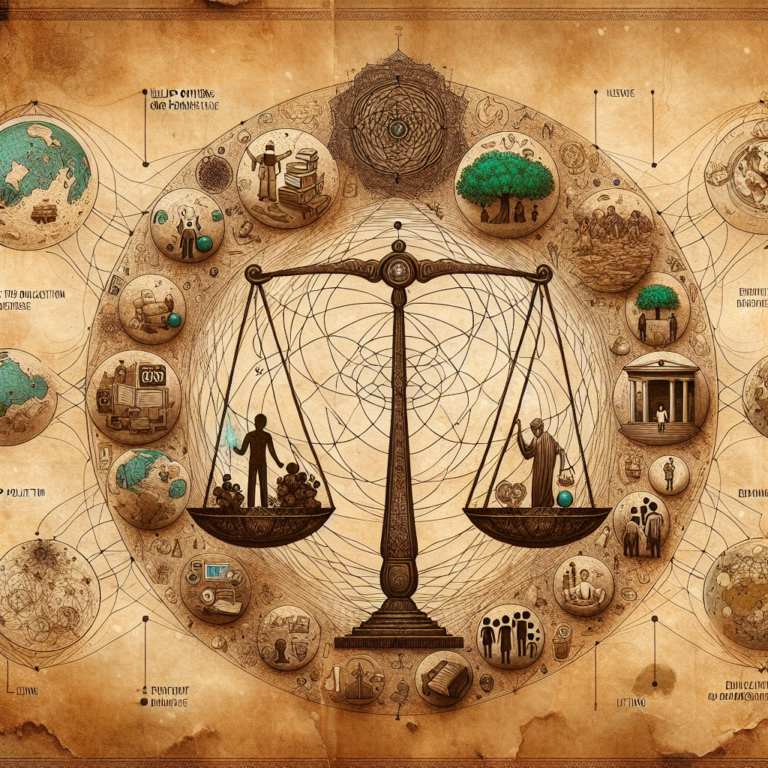Karma is a concept deeply rooted in various Eastern philosophies and religions, particularly Buddhism and Hinduism. At its core, karma is the moral law of cause and effect, where every action (cause) has repercussions (effect) that manifest in the future. This principle serves as a framework for understanding how our thoughts, intentions, and actions can influence our lives and the world around us. In this article, we will delve into the nature of karma and explore its implications for our daily lives.
The Origins of Karma
The term "karma" comes from the Sanskrit word "karman," which means "action" or "deed." In many Eastern traditions, it is viewed as a natural law that governs not just human actions, but also the workings of the universe. While many people conjure up images of past lives and reincarnation when they think about karma, it is much more than that—it’s about the choices we make in our present existence.
In Hinduism, karma is often tied to the cycle of samsara (the continual cycle of birth, death, and rebirth) and affects one’s dharma (moral obligations). Buddhism also acknowledges karma but emphasizes the ethical dimensions of our actions. The way you act, speak, and even think can create karma that shapes your future experiences.
The Principle of Cause and Effect
At the heart of the karma concept lies the law of cause and effect. This principle teaches us that:
- Every action has consequences: Good actions often yield positive experiences, while harmful actions typically result in negative outcomes.
- Intentions matter: Karma is not just about the actions we take, but also about the intent behind those actions. Two people can perform the same act, but the outcome can differ based on their motivations.
- Karma transcends time: While many people associate karma with immediate outcomes, it doesn’t operate on a strict timeline. Positive or negative consequences may manifest in this life, future lives, or in subtle, unexpected forms.
Everyday Applications of Karma
Understanding karma can dramatically alter how we live our daily lives. Here are a few ways:
1. Mindful Living
When we embrace the concept of karma, it encourages us to live more mindfully. This means actively considering the potential consequences of our actions before we make choices. For example, when interacting with others, we may think about how our words might affect their feelings and well-being.
2. Cultivating Positive Intentions
Karma teaches us that the quality of our actions is shaped significantly by the motivations behind them. By focusing on acting with kindness, compassion, and honesty, we can generate positive karma that can manifest in our lives in the form of greater happiness and fulfillment.
3. Accepting Responsibility
The understanding of karma urges us to take responsibility for our actions. Instead of blaming external circumstances for difficulties and hardships, we can reflect on our contributions to our current situation. This perspective can empower us to make positive changes, knowing that our actions can lead to different outcomes in the future.
4. Developing Resilience
Recognizing that negative experiences can serve as opportunities for growth is another important aspect of karma. If we understand that suffering might be tied to past actions, we can develop resilience and a growth mindset, directing our focus toward learning and improvement.
5. Building Stronger Relationships
The principle of karma emphasizes the interconnectedness of all beings. By treating others with respect and empathy, we not only create positive karma for ourselves but also build healthier, more meaningful relationships. The kindness we extend is likely to be returned in various forms, reinforcing a community of mutual support.
Karma and Misconceptions
Despite its significance, karma is often misunderstood. Some common misconceptions include:
Karma is punitive: Many believe karma is about punishment for wrongdoings. However, it’s more about balance and justice rather than vengeance. It’s a natural law, much like gravity; it’s impartial and operates without malice.
It only applies to moral actions: While karma is often discussed in the context of morality, it also encompasses neutral actions. Every action—not just those we consider moral—carries potential consequences.
- Karma can be a reason for a person’s suffering: While it’s true that suffering may be connected to past actions, it is not a punishment. Instead, it can be an opportunity for growth, healing, and understanding.
Conclusion
Karma serves as a vital framework for understanding our experiences and interactions. By embracing the principles of cause and effect, we can navigate our lives with greater awareness and responsibility. Each decision, thought, and action contributes to the fabric of our existence and impacts the world around us.
As we cultivate awareness around our intentions and actions, we not only shape our own destinies but also contribute to the collective karma of humanity. In this way, understanding karma transforms challenges into opportunities, encouraging personal growth and positive change.
FAQs About Karma
Q1: Does karma only apply to humans?
Karma is often discussed in the context of human actions, but the principle of cause and effect applies universally. All beings, including animals and even inanimate entities, influence each other’s existence through their interactions.
Q2: Can I change my karma?
Yes! While past actions generate certain consequences, you always have the power to create new karma through present actions. By making more conscious choices now, you can positively influence your future.
Q3: How can I balance my karma?
Balancing karma involves reflecting on past actions, learning from your experiences, and actively engaging in positive behaviors. Acts of kindness, compassion, and forgiveness can help mitigate negative karma.
Q4: Does karma affect my relationships?
Yes, your actions and intentions significantly shape your interactions with others. Cultivating positive karma through respectful and loving relationships can strengthen bonds and promote harmony.
Q5: Is karma related to fate?
Karma is distinct from fate. While fate implies a predetermined outcome, karma emphasizes the choices you make. Your actions can affect your future experiences, thus demonstrating that you have agency over your life path.
Understanding karma empowers us to lead more intentional lives, promoting a cycle of positivity, compassion, and personal growth.
Of course! Please provide me with the details or context for the prompt you’d like assistance with, and I’ll be happy to help!, #Understanding #Karma #Law #Effect #Daily #Lives, #Understanding #Karma #Law #Effect #Daily #Lives, 1736474361, understanding-karma-the-law-of-cause-and-effect-in-our-daily-lives





